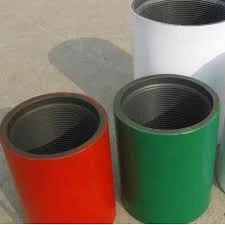- Afrikaans
- Albanian
- Amharic
- Arabic
- Armenian
- Azerbaijani
- Basque
- Belarusian
- Bengali
- Bosnian
- Bulgarian
- Catalan
- Cebuano
- Corsican
- Croatian
- Czech
- Danish
- Dutch
- English
- Esperanto
- Estonian
- Finnish
- French
- Frisian
- Galician
- Georgian
- German
- Greek
- Gujarati
- Haitian Creole
- hausa
- hawaiian
- Hebrew
- Hindi
- Miao
- Hungarian
- Icelandic
- igbo
- Indonesian
- irish
- Italian
- Japanese
- Javanese
- Kannada
- kazakh
- Khmer
- Rwandese
- Korean
- Kurdish
- Kyrgyz
- Lao
- Latin
- Latvian
- Lithuanian
- Luxembourgish
- Macedonian
- Malgashi
- Malay
- Malayalam
- Maltese
- Maori
- Marathi
- Mongolian
- Myanmar
- Nepali
- Norwegian
- Norwegian
- Occitan
- Pashto
- Persian
- Polish
- Portuguese
- Punjabi
- Romanian
- Russian
- Samoan
- Scottish Gaelic
- Serbian
- Sesotho
- Shona
- Sindhi
- Sinhala
- Slovak
- Slovenian
- Somali
- Spanish
- Sundanese
- Swahili
- Swedish
- Tagalog
- Tajik
- Tamil
- Tatar
- Telugu
- Thai
- Turkish
- Turkmen
- Ukrainian
- Urdu
- Uighur
- Uzbek
- Vietnamese
- Welsh
- Bantu
- Yiddish
- Yoruba
- Zulu
bull plug vs hex plug
Bull Plug vs Hex Plug A Comprehensive Comparison
When it comes to plumbing and piping systems, the choice of fittings plays a crucial role in ensuring proper functionality and reliability. Two common types of plugs used in various applications are the bull plug and the hex plug. Understanding the differences between these two types of plugs can help professionals and DIY enthusiasts make informed decisions for their projects. This article delves into the characteristics, applications, advantages, and disadvantages of bull plugs and hex plugs.
What is a Bull Plug?
A bull plug, also known as a round plug or threaded plug, features a rounded end and is typically used to close off the end of a pipe or fitting. They are designed to provide a tight seal and are available in various materials, including metal and plastic. Bull plugs are predominantly used in irrigation systems, HVAC applications, and automotive engines where a simple closure is required.
What is a Hex Plug?
A hex plug, on the other hand, is characterized by its hexagonal shape, which allows for a wrench or socket to grip it securely. Hex plugs are commonly used in plumbing, heating, and even in hydraulic systems. They are often made from durable materials such as brass, stainless steel, or plastic. The hexagonal design provides a solid grip, making it easier to install or remove compared to round plugs, which may require more dexterity.
Key Differences
1. Shape and Design The most apparent difference between the two is their shape. Bull plugs have a rounded end, while hex plugs are hexagonal. The shape affects how they are installed and removed. Hex plugs, due to their six-sided shape, provide better leverage for tightening or loosening.
2. Ease of Installation Hex plugs are easier to install and remove because of their design, which allows for the use of wrenches. In contrast, bull plugs may require more physical effort to install tightly, especially in high-pressure applications.
3. Application Bull plugs are often preferred for applications where a quick, simple seal is needed without the requirement for heavy torque. Hex plugs are used in situations where a strong, secure fit is crucial, such as in sealing high-pressure lines or hydraulic systems.
4. Material Compatibility Both types of plugs come in a variety of materials, but the choice often depends on the application. Hex plugs are frequently found in metal options, which are better suited for high-pressure environments. Bull plugs can be made from both metal and plastic, providing versatility for different applications.
bull plug vs hex plug

Advantages of Bull Plugs
- Simplicity Bull plugs are straightforward to use and can be quickly fitted by hand without the need for tools. - Cost-Effective Typically, bull plugs are less expensive than hex plugs, making them a budget-friendly choice for many applications. - Space Saving Their rounded design allows for installation in tighter spaces where a hex plug may not fit easily.
Disadvantages of Bull Plugs
- Limited Torque Application Bull plugs may not provide a secure enough seal in high-pressure systems due to the lack of torque that can be applied. - Installation Difficulty Without the use of tools, achieving a proper seal can be challenging, especially in demanding applications.
Advantages of Hex Plugs
- Strong Seal Hex plugs are designed to withstand higher pressure, making them ideal for critical applications. - Tool Accessibility The ability to use tools greatly enhances the installation and removal process, ensuring a tightly fitted plug. - Durability Typically made from more robust materials, hex plugs can handle tougher environments.
Disadvantages of Hex Plugs
- Cost Hex plugs are generally more expensive than bull plugs. - Size Their shape may require more space for installation, potentially limiting where they can be used.
Conclusion
In summary, both bull plugs and hex plugs have their unique strengths and are suited for different applications. While bull plugs offer simplicity and cost-effectiveness, hex plugs provide security and durability in high-pressure situations. Choosing between the two depends on the specific requirements of the application, including pressure levels, space constraints, and budget considerations. Understanding these differences ensures that the right fitting is selected for optimal performance and safety in plumbing and piping systems.
-
Tubing Pup Joints: Essential Components for Oil and Gas OperationsNewsJul.10,2025
-
Pup Joints: Essential Components for Reliable Drilling OperationsNewsJul.10,2025
-
Pipe Couplings: Connecting Your World EfficientlyNewsJul.10,2025
-
Mastering Oilfield Operations with Quality Tubing and CasingNewsJul.10,2025
-
High-Quality Casing Couplings for Every NeedNewsJul.10,2025
-
Boost Your Drilling Efficiency with Premium Crossover Tools & Seating NipplesNewsJul.10,2025







